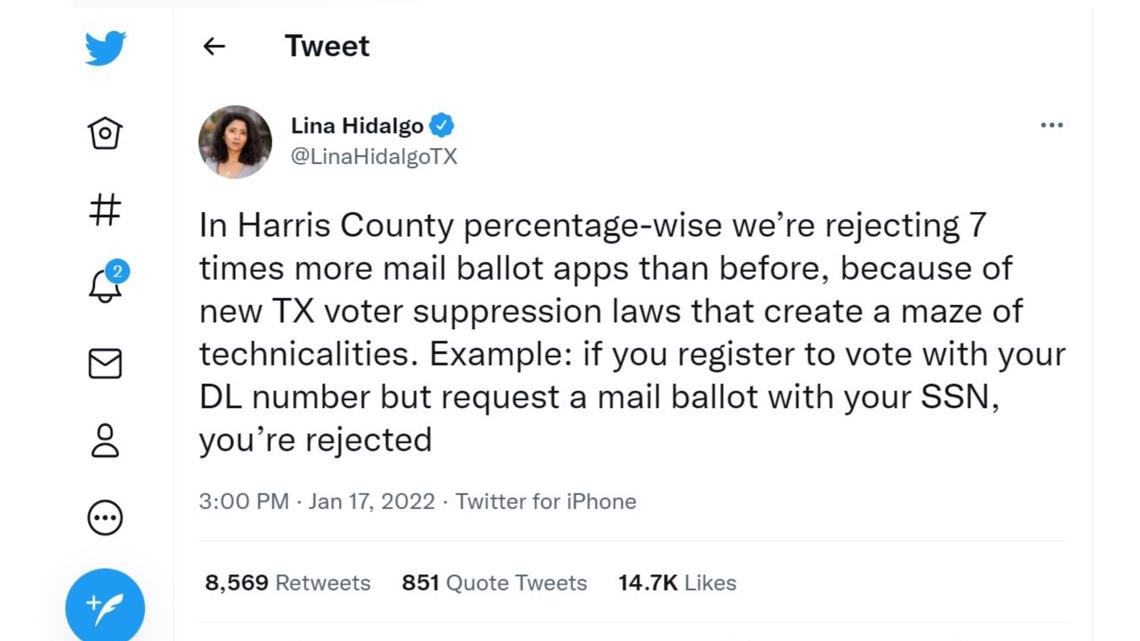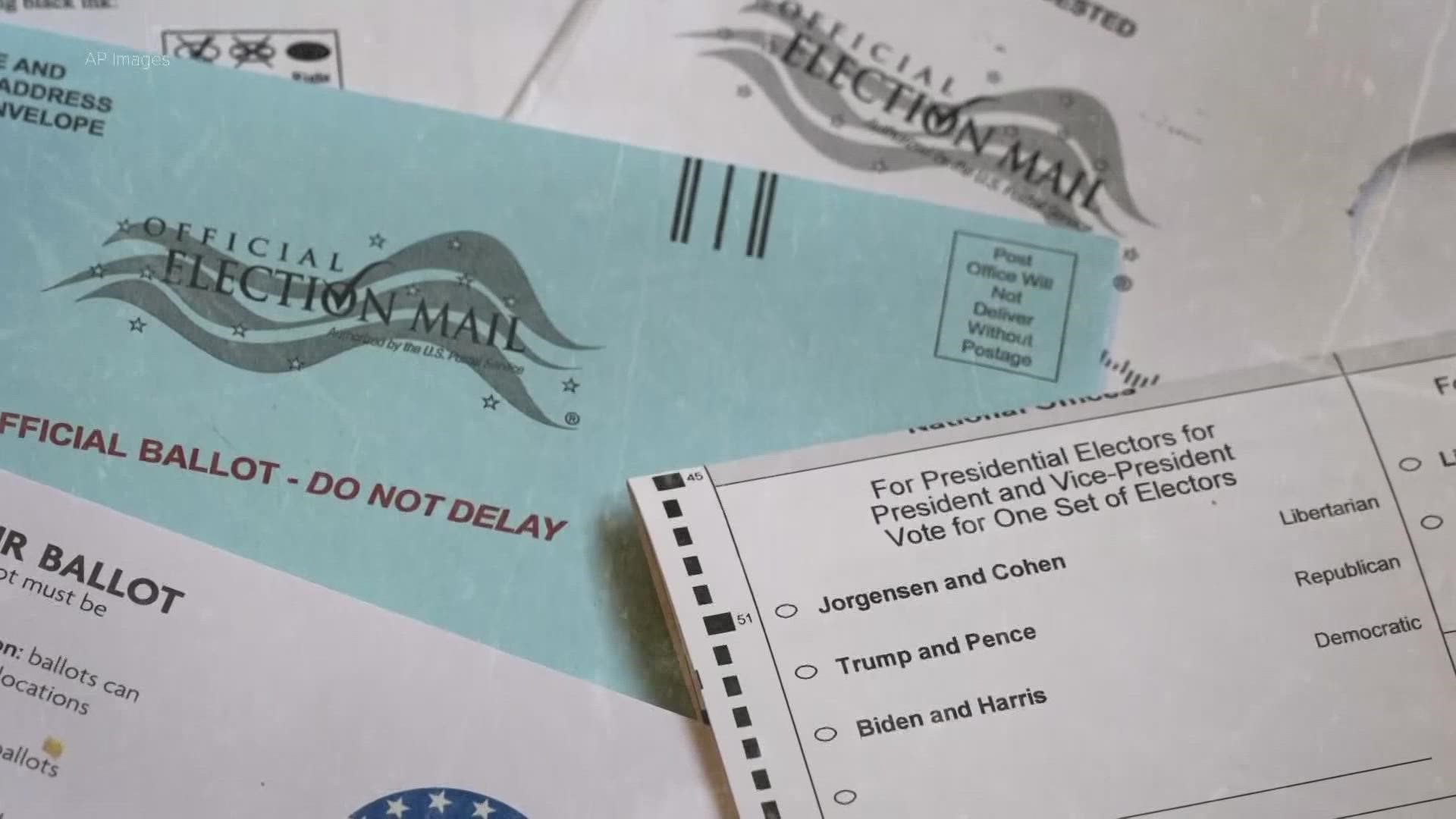DALLAS — Elections officials across Texas report a much higher-than-normal rejection rate for mail-in ballot applications after changes to election law this year. But the head election official in the state defies allegations that that's the intent or result is voter suppression.
Tarrant County Elections Administrator Heider Garcia, in a presentation to Tarrant County Commissioners, said changes to the mail-in ballot application, required by SB1, have led to a rejection of applications at a rate of approximately 40% at his office. The new application asks for a driver's license number, state issued ID number and/or the last four numbers of your social security number.
"If they miss that field because they're not used to putting in their social or driver's license, that application is going to be rejected because it doesn't meet the new state law," Garcia said. He says rejections are also mandated when new registrations don't fully match old ones.
"If you filled out the registration form and you added your social, but you send us a form this time with a driver's license, we have no way to match it. That's going to be a rejection as well," he explained.
Elections officials and county leaders across Texas are complaining about the same thing. Dallas County Judge Clay Jenkins says an approximate 40% rejection rate of mail-in ballot applications is happening at Dallas County Elections, as well. Denton County reports a 28% rejection rate.
The Harris County Judge in Houston complained on Twitter that seven-times more mail-in ballot applications are being rejected "because of new TX voter suppression laws that create a maze of technicalities."


The League of Women voters says some churches and other organizations helping with voter turnout did mistakenly send out the old version of the mail-in ballot application forms, leading some to submit the wrong form and inadequate information. But they recommend going to the Texas Secretary of State website, VoteTexas.gov and filling out all of your identifying information.
"If the secretary of state file has your driver's license and your social, then you should come out of this OK," said Barbara Larkin, the VP of Voters Service for the League of Women Voters of Dallas. "SB1 has actually complicated voting in many ways, this is just one."
But Texas Secretary of State John B. Scott chalked the increased rates to being in a "learning curve," he said in an interview with WFAA.
"I see our role as public officials who work for the public's chance to go vote as vital to make sure we do everything we can to avoid any confusion," he said. "So, when I hear about a county judge expressing an opinion that there's somehow voter suppression going on, that seems to sow the seeds of just discouragement or confusion amongst potential voters."
Any residents concerned about their ballot application can track its status online at the Secretary of State's My Voter Portal.
Scott also advised any concerned voters to call his office at 800-252-VOTE if they have any questions or concerns about the new forms or rules.

